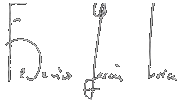Romance Sonámbulo
To Gloria Giner
and Fernando de los Ríos
Green, as I love you, greenly.
Green the wind, and green the branches.
The dark ship on the sea
and the horse on the mountain.
With her waist that’s made of shadow
dreaming on the high veranda,
green the flesh, and green the tresses,
with eyes of frozen silver.
Green, as I love you, greenly.
Beneath the moon of the gypsies
silent things are looking at her
things she cannot see.
Green, as I love you, greenly.
Great stars of white hoarfrost
come with the fish of shadow
opening the road of morning.
The fig tree’s rubbing on the dawn wind
with the rasping of its branches,
and the mountain thieving-cat-like
bristles with its sour agaves.
Who is coming? And from where...?
She waits on the high veranda,
green the flesh and green the tresses,
dreaming of the bitter ocean.
—‘Brother, friend, I want to barter
your house for my stallion,
sell my saddle for your mirror,
change my dagger for your blanket.
Brother mine, I come here bleeding
from the mountain pass of Cabra.’
—‘If I could, my young friend,
then maybe we’d strike a bargain,
but I am no longer I,
nor is this house, of mine, mine.’
—‘Brother, friend, I want to die now,
in the fitness of my own bed,
made of iron, if it can be,
with its sheets of finest cambric.
Can you see the wound I carry
from my throat to my heart?’
—‘Three hundred red roses
your white shirt now carries.
Your blood stinks and oozes,
all around your scarlet sashes.
But I am no longer I,
nor is this house of mine, mine.’
—‘Let me then, at least, climb up there,
up towards the high verandas.
Let me climb, let me climb there,
up towards the green verandas.
High verandas of the moonlight,
where I hear the sound of waters.’
Now they climb, the two companions,
up there to the high veranda,
letting fall a trail of blood drops,
letting fall a trail of tears.
On the morning rooftops,
trembled, the small tin lanterns.
A thousand tambourines of crystal
wounded the light of daybreak.
Green, as I love you, greenly.
Green the wind, and green the branches.
They climbed up, the two companions.
In the mouth, the dark breezes
left there a strange flavour,
of gall, and mint, and sweet-basil.
—‘Brother, friend! Where is she, tell me,
where is she, your bitter beauty?
How often, she waited for you!
How often, she would have waited,
cool the face, and dark the tresses,
on this green veranda!’
Over the cistern’s surface
the gypsy girl was rocking.
Green the flesh is, green the tresses,
with eyes of frozen silver.
An ice-ray made of moonlight
holding her above the water.
How intimate the night became,
like a little, hidden plaza.
Drunken Civil Guards were beating,
beating, beating on the door frame.
Green, as I love you, greenly.
Green the wind, and green the branches.
The dark ship on the sea,
and the horse on the mountain.

Federico García Lorca, 1928
Translator: A. S. Kline
Translator Note: Cabra is south-east of Córdoba, and north of Málaga, in the mountains of Andalusia.
Lorca said ‘If you ask me why I wrote “A thousand tambourines of
crystal, wounded the light of daybreak —Mil panderos di cristal,
herían la madruga,” I will tell you that I saw them in the hands
of trees and angels, but I cannot say more: I cannot explain their
meaning. And that is how it should be. Through poetry a man more
quickly reaches the cutting edge that the philosopher and the
mathematician silently turn away from.